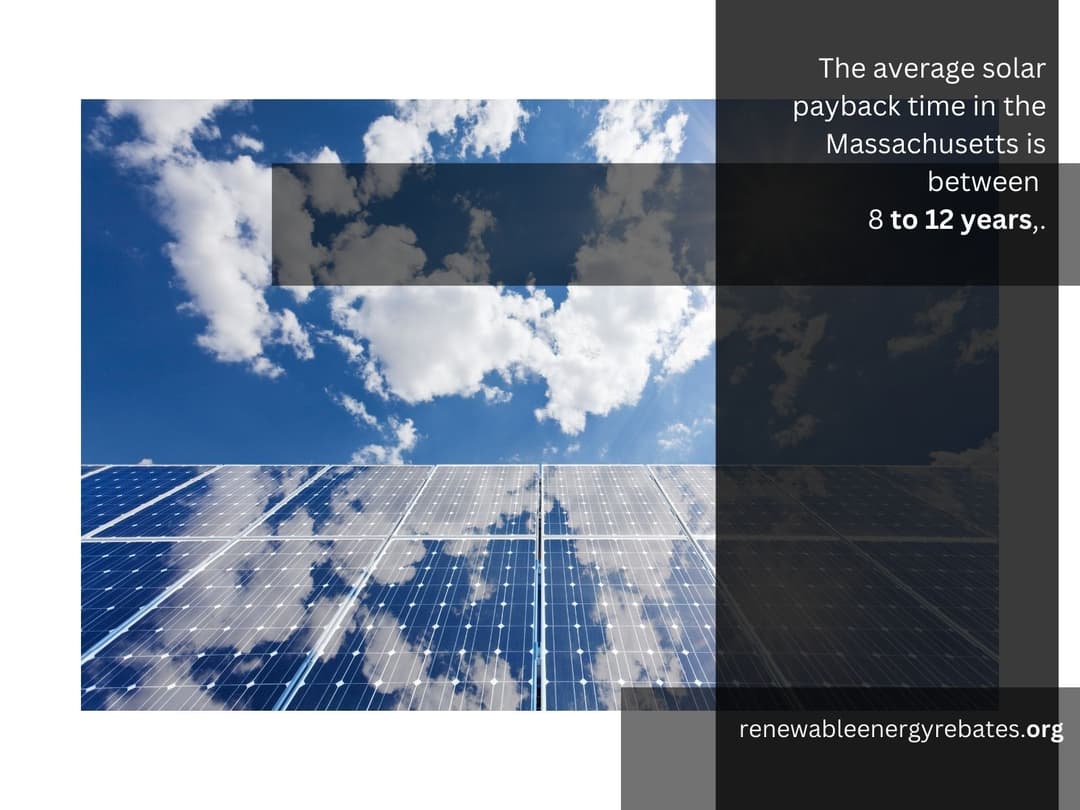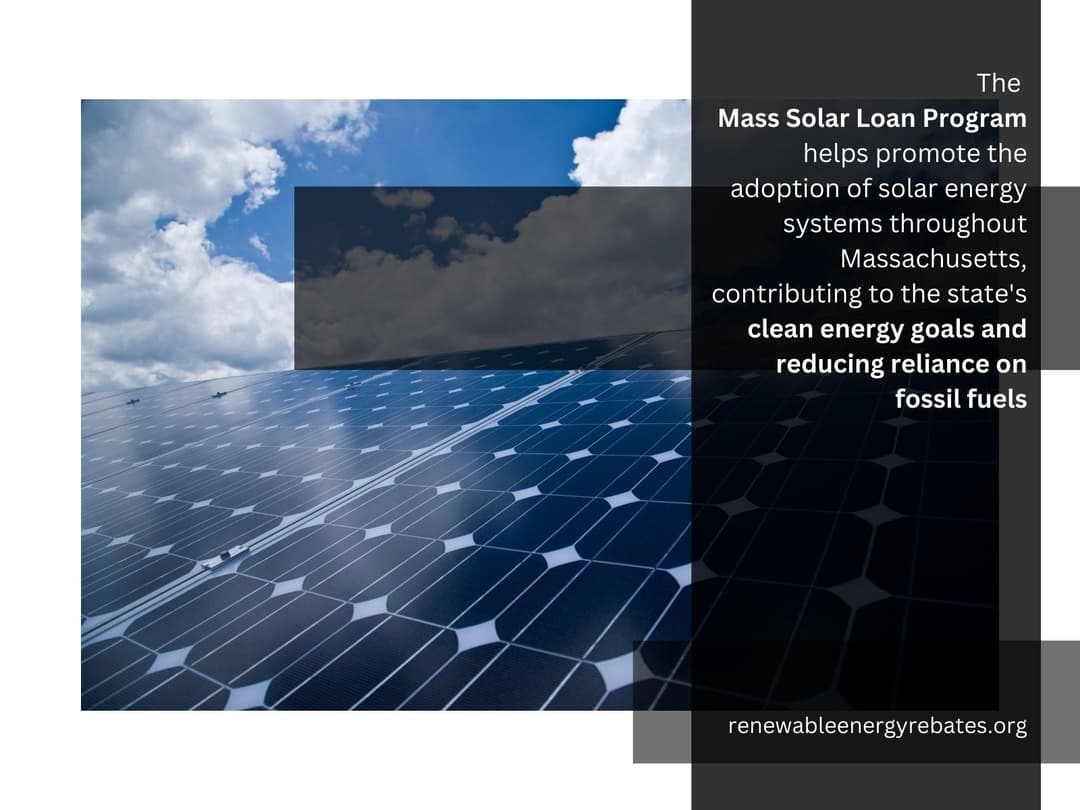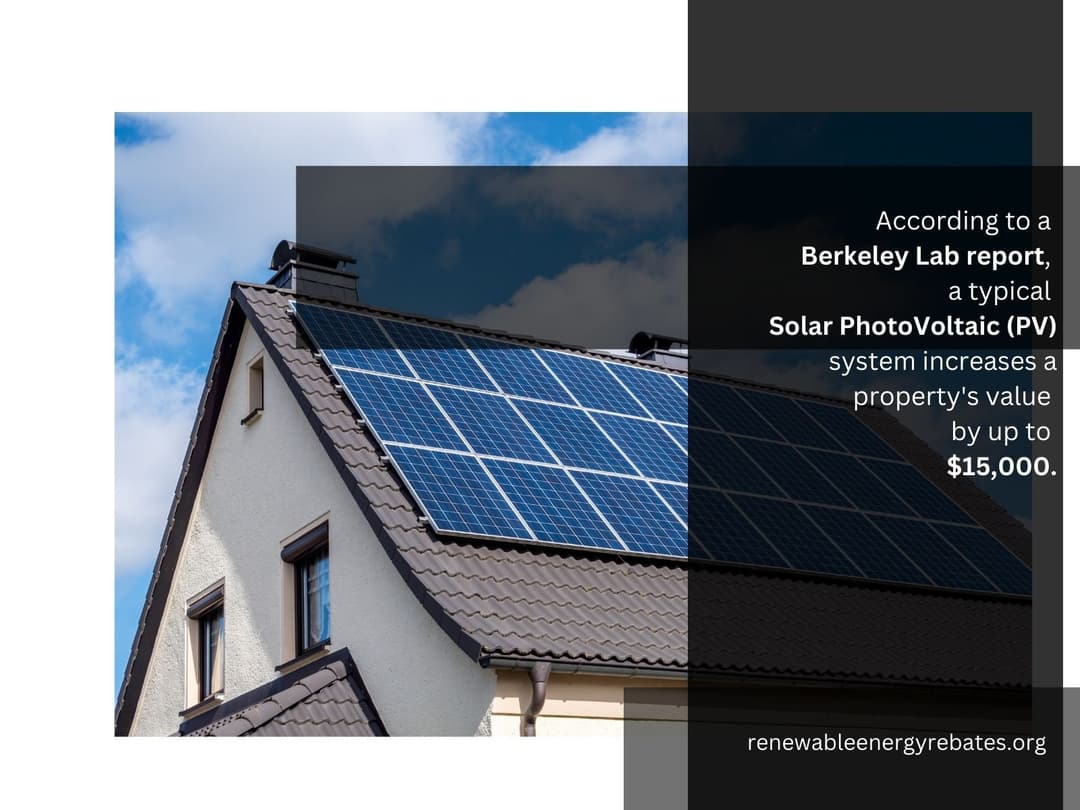Massachusetts: Solar Economics
Powering the Bay State: Solar Loans and Financing in Massachusetts
Key Details
- In Massachusetts, financing options for solar panel systems include direct ownership (cash purchase or solar loan) and third-party ownership (solar lease/PPA).
- With direct ownership homeowners enjoy the benefits of energy produced by the system and can receive credit for any excess electricity fed back into the grid.
- Third-party ownership allows homeowners to enjoy the benefits of energy production without having to pay the upfront costs.
- Owning your own system offers lower energy costs, potential return on investment (ROI), green energy solutions, energy independence, and increased home value.
- Installation of a solar panel system may impact homeowner's insurance policies so insurance should be reviewed to understand coverage needs.
What Financing Options Are Available to Me in Massachusetts?
There are two main ways of accessing solar panel system energy in Massachusett:
- Direct ownership through cash purchase and solar loan
- Third-party ownership through solar lease and power purchase agreement.
With direct ownership, the homeowner owns, maintains, installs, and enjoys the benefits of the solar system. As the owner of the system, the homeowner will also be responsible for the operation and maintenance of the system.
In contrast, with third party ownership, Massachusetts homeowners get to enjoy the benefits of energy generated from residential solar systems only without having to pay the high upfront system costs of the system.

What Loans Are Available to Help Me Go Solar in Massachusetts?
Homeowners have access to multule solar loan options in Massachusetts, including solar financing with varying monthly payments, interest rates, loan terms, credit requirements, and security mechanisms.
Solar loan options in Massachusetts may be secured or unsecured. A secured solar loan requires an asset to serve as collateral to get the loan, while an unsecured loan does not require an asset as collateral.
Solar loan lenders in Massachusetts include state programs, solar developers, private financing companies, banks, credit unions, and utilities. Examples of lenders include Capital Good Fund (DoubleGreen Solar Loans), ReVision Energy, RevoluSun, Sungage Financial, and UMassFive.
The Commonwealth of Massachusetts offers its residents a solar loan program called the Mass Solar Loan Program. The Massachusetts Department of Energy Resources (DOER) and the Massachusetts Clean Energy Center (MassCEC) work in partnership to administer this program.
The program connects homeowners that want to purchase and install solar panel systems in their homes with financing opportunities through low-interest loans.
It is available for owners of primary or secondary residences, individual condominium units, and owner-occupied multi-family homes with three or fewer units. Residents who want to purchase a share in a community shared solar project also qualify.

The Mass Solar Loan Program provides loans for moderate-income earners and persons with low credit scores. The terms of the loan differ based on the lender. However, approved loans usually have:
- 10-year tenure (at least)
- A fixed interest rate of 3% or less
- Either secured or unsecured
- The loan amount ranges from $3,000 - $60,000
- $500 maximum closing costs
How Will Solar Affect My Home Value if I Want to Sell in Massachusetts?
Adding a solar installation increases the value of a home, according to reports by the National Bureau of Economic Research and the Lawrence Berkeley National Laboratory.
This is because solar power on the property reduces or eliminates energy costs. Future buyers get to enjoy annual utility bill savings while avoiding the impact of future utility rate increases in electricity costs.

Financing your Solar Installation in Massachuseets
Direct Ownership Financing: What You Need to Know
With direct ownership, the homeowner owns, maintains, installs, and enjoys the benefits of the solar system. As the owner of the system, the homeowner will also be responsible for the operation and maintenance of the system.
The two ways a Massachusetts resident can directly own a solar system is through cash purchase and solar loan.
Cash purchase
This is an outright or upfront payment for the solar system and its installation by the homeowner.
If the solar panel system purchased is meant to generate 100% of your electricity needs, then the upfront purchase means you paid for 25 years worth of electricity.
You are free from any future electricity rate increases and enjoy the financial incentives and rebates of going solar. You are also likely to see a better return on investment from solar.
The disadvantage of a cash purchase is that it is not cheap, so you must have enough money to handle it.
Solar loan
Generally, solar loans work the same way most loans work. Through loan financing, you can spread the payment for the cost of purchase and installation of the solar panel system over a period instead of making an upfront payment.
You also have direct ownership of the system, so you enjoy the benefits of ownership. However, you incur liabilities of paying interest on the loan.
The incentives and rebates associated with direct ownership of solar panel systems in Massachusetts include:
Residential Renewable Energy Income Tax Credit: Homeowners in Massachusetts are entitled to a 15% tax credit (up to $1,000) on their state income tax return for the net expenditure of a renewable energy system installed on their primary residence.
The “net expenditure” is the total purchase price for any renewable energy source property and installation cost, less any federal tax credits and rebates/grants from the Department of Housing and Urban Development.
Solar Massachusetts Renewable Target (SMART) Program: Under this program, Massachusetts residents receive monthly payments for each kilowatt-hour of energy generated by their solar systems over ten years of solar production.
Massachusetts Solar Tax Exemption: Massachusetts exempts equipment relating to any solar system being used as a primary or auxiliary power system for supplying energy to a person’s primary residence from state sales tax.
Massachusetts Property Tax Exemption: Massachusetts exempts solar energy systems used as a primary or auxiliary power system for energy needs from local property tax for 20 year.
Massachusetts Net Metering Program: In Massachusetts, homeowners are paid per kilowatt-hour for any excess electricity their solar panels produce and feed back into the main power grid.
Federal Solar Investment Tax Credit (ITC): Massachusetts residents can take advantage of this solar incentive that enables them to claim a tax credit for 30% of their overall equipment and installation expenditures on their next federal tax return.
Licensed solar companies in Massachusetts can help your system qualify for the above incentives and help you apply for them on your behalf.

Third-Party Ownership: What You Need to Know
With a third party ownershipm, Massachusetts homeowners get to enjoy the benefits of energy generated from residential solar systems only without having to pay the high upfront system costs of the system.
Instead, payments are spread out over time. It also means that a third party owns, maintains, installs, and enjoys the benefits of the system.
The third party is also responsible for the system’s operation and maintenance. Third-party ownership can be done through a solar lease and power purchase agreement (PPA)
Solar lease
Under this arrangement, a homeowner enters an agreement to make scheduled, fixed payments to a solar leasing company, which owns the solar system and installs it on the homeowner’s property.
The homeowner consumes electricity produced by the leased solar system. If the system generates excess electricity fed to the grid, the homeowner may receive credit for the generation from the electrical utility.
In a solar lease arrangement, the homeowner is responsible for paying the regular utility rate for any excess electricity consumed beyond the credits the solar system generates through excess production fed into the grid.
PPA
A residential solar PPA is where a homeowner agrees with a financer who installs, owns, and maintains a solar system on the homeowner’s property and agrees to provide all of the electricity generated by the system to the homeowner at a set per-kilowatt-hour rate that is usually competitive with the homeowner’s electric utility rate.
The obligations under solar leases and PPAs can usually be lengthy, as they can run for 20 years or more. They also usually have a term in the contract that allows the homeowner to opt to buy the system outrightly on a particular date.
What Are the Benefits of Owning My Solar Energy System in Massachusetts?
The benefits of owning your system include:
Lower Energy Costs: Solar panels convert solar energy into usable light for your home. Your solar panels might provide more energy throughout the summer than you require. This power is returned to the electrical system and converted into money on your utility bill through net metering.
Return on Investment: Reduced energy expenses will eventually allow your solar panels to pay for themselves. A domestic solar system in Massachusetts typically pays for itself in between six and nine years. When you decide to sell your house, you will also see an increase in your return on investment. Homeowners with solar systems can realize greater lifetime financial benefits from directly owning the solar systems.
Direct ownership of a solar system allows you to enjoy the green energy and environmental incentives and tax credits that the system generates.
Environmentally-Friendly (Green Energy): Homeowners who use solar energy instead of electricity generated by burning fossil fuels lessen their carbon footprint and help ensure a more sustainable future.
Energy Independence: You will achieve energy independence if your solar panels can supply all of your household’s energy requirements. When the electrical grid is down, it helps you to not depend on your utility provider for power.
Increases the value of your home: Owning a solar panel system can increase the value of your home. According to the United States Office of Energy Efficiency & Renewable Energy, home buyers are willing to pay a higher amount of about $15,000 for a home with an average-sized solar system.
Will Going Solar Affect My Insurance in Massachusetts?
If your solar panels are attached to your house, they will be covered by your home insurance because they fall under the dwelling part of your insurance policy.
This means you will receive compensation if they are damaged by a peril covered by your policy, like fire or hail. However, you may have to buy a different policy to protect your solar panels from events like wear and tear, earthquakes, or flooding.
Also, if you got your solar panel after you purchased your policy, your homeowner’s insurance policy may increase because of your solar panels. This is because most homeowners insurance policy premiums are based on the house’s value to sufficiently cover any incident that occurs. And since solar panels raise the value of your home, it in turn raises your insurance policy premiums. Hence, you may need to increase your insurance coverage to reflect the rise in the value of your property.
Furthermore, there are some instances where you may need to buy separate insurance or add more coverage to protect your solar panels. For instance, if your solar panel system is not installed on your roof, but is mounted on the ground in your yard, wall, or carport, you will require a different policy. Your homeowner’s insurance will provide coverage for solar panels that are permanently fixed to your home.
Generally, you should review your insurance policy to know the perils that cover your solar panels. You should also contact your insurance company to know if you need to buy a separate policy to cover other perils. You can also speak to an insurance agent to find the best course of action to take.